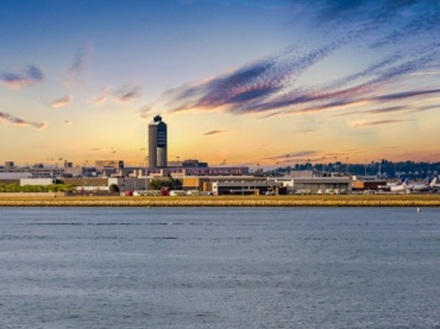The Commonwealth has the money to protect the common wealth
We can’t let federal cuts derail our commitment to things Massachusetts values
by Max Page

WHEN I SERVED as the first student member of the Amherst-Pelham Regional School Committee, deep in the 20th century (1983-84), in the aftermath of Proposition 2½, I remember hearing the phrase “tough budget year” for the first time. I have heard it virtually every year since. I wondered back then: Maybe our state simply does not have enough wealth to support the schools and colleges and communities we want.
After 30 years of hearing that austerity mantra, I remember in 2014 reading a Boston Globe article by then-journalist and now Tufts University state policy center director Evan Horwitz, titled “If Massachusetts were a country, how rich would it be?”
The answer was that a Republic of Massachusetts in 2014 would have been the fourth wealthiest nation on earth, just ahead of Hong Kong, Sweden, and Switzerland. It was a stunning revelation about how much annual income is generated in the Commonwealth.
Given what we are facing now, we in the Massachusetts Teachers Association thought it useful to ask the question again, to see how we are doing 10 years on.
So, how wealthy is the “Republic of Massachusetts” today?
The latest available figures from 2023 on income show that a Republic of Massachusetts would still rank as one of the wealthiest nations on earth, with a per capita income of $90,596, a remarkable jump from 2014, when per capita income, adjusted to 2023 dollars, totaled $58,141.
A Republic of Massachusetts today trails only Monaco ($180,080), Bermuda ($130,290), Lichtenstein ($116,440), Norway ($102,910), and Switzerland ($95,070) when looking at per capita income. And even though global income from the same period is measured somewhat differently, adding such factors as capital gains, which are not part of the state calculation, the point is that Massachusetts has the means of a nation to support what the state values.
This all matters right now because we know terrible cuts are coming from the federal government. Between Trump’s mob-like attempts at blackmail – using the threat of withholding federal funds unless we abandon our commitments to educating and celebrating all of our students and telling truthful history – and the commitment to stealing health care from millions on Medicaid in order to fund further tax breaks for the very wealthy, we have to expect a huge budget threat.
And while Gov. Healey was right to say, as she did recently, that there is no way Massachusetts can make up the $16 billion in federal funds the state receives annually from the federal government, we have to be prepared to protect our people from the worst of the harm coming from Trump. (Note that Massachusetts residents and businesses pay over $150 billion in federal taxes every year; we are a “donor” state, meaning we send more taxes to DC than we get in federal spending – to the tune of $46 billion.)
And because we are looking at taxable income, Massachusetts does have the ability to buffer whatever blows come from the Trump administration. The real question is whether our state has the political will to take bold action. I believe the answer is “yes.”
One practical solution is to have Massachusetts implement the Corporate Fair Share bill introduced by Sen. Jason Lewis and Rep. Carlos Gonzalez. This bill could raise an additional $400 million for Massachusetts by exposing more of the profits a megacorporation stashes offshore to state taxes. Massachusetts currently taxes 5 percent of this so-called global intangible low-taxed income, while other states — and the federal government—tax 50 percent of a corporation’s GILTI. The Corporate Fair Share bill brings us in line with other states.
Fair and pragmatic tax policies work.
We in the MTA played a central role, as part of the Raise Up Massachusetts coalition, in making our tax system fairer by getting the wealthiest – the half of 1 percent of the wealthiest households in the state – to pay a little more so we can invest in our public schools, colleges, and transportation systems. The voters agreed with us at the ballot in 2022, passing a constitutional amendment that adds a surtax on high earners.
Almost everyone – including those who spent millions to protect the uber-rich from paying four cents more on every dollar over the first $1 million in annual income – is thrilled by the $2.5 billion coming in annually to state coffers and being spent on free tuition for community colleges, universal school meals, money for literacy supports, for child care, for aid to middle class school districts, and for improving the T and local roads and bridges, and providing free regional buses.
The millionaires and billionaires haven’t left – as too many egg-on-their-face commentators predicted – because Massachusetts is a place those wealthy people want to live – and where they have made money, hand over fist.
So, when the federal cuts come and we hear about a really “tough budget year,” and politicians say with conviction that we will have to “tighten our belts,” let’s instead ask ourselves: Will we undermine our public schools and colleges, devastate research at our public universities, lay off mental health workers, defund our hospitals, all so that the very, very rich can hold onto their latest round of Trump tax-cut millions?
Or will our legislative leaders and our governor make the logical, moral, and strategic decision and mirror the 2022 electorate by passing and signing into law progressive revenue legislation to counter Trump’s draconian maneuvers and maintain our commitments to the quality of life in our state?

That is the “Republic of Massachusetts” I want to live in.Max Page is president of the Massachusetts Teachers Association
Commonwealth News Service
